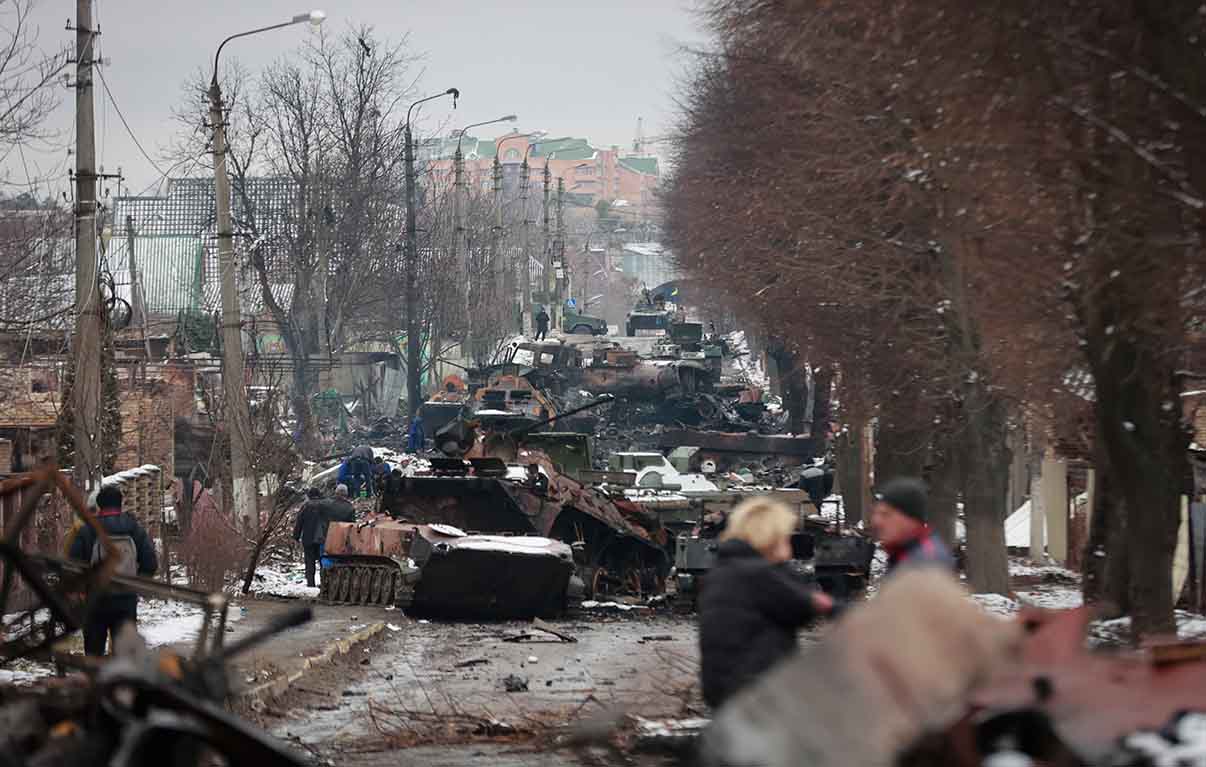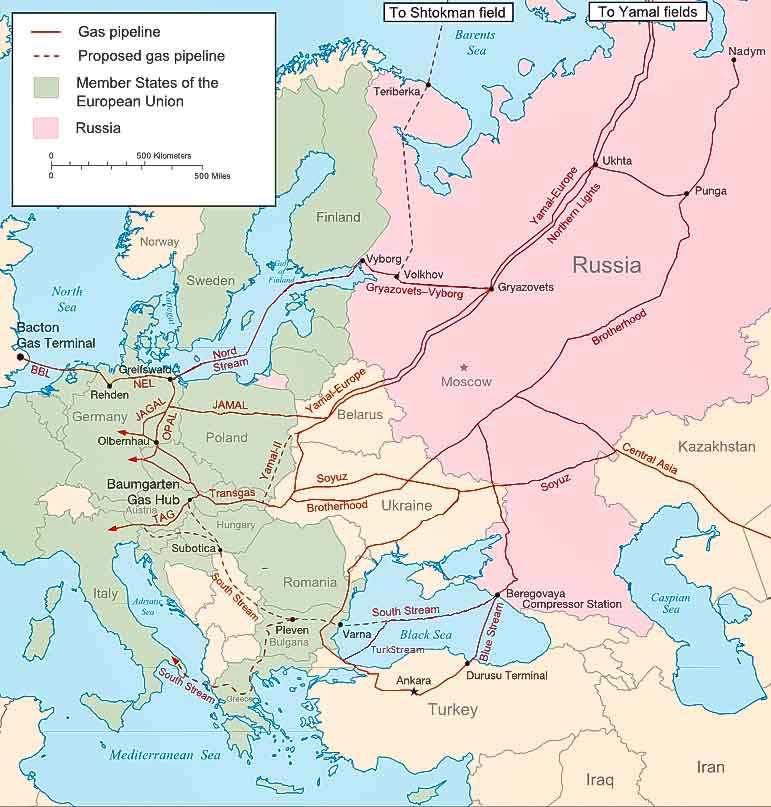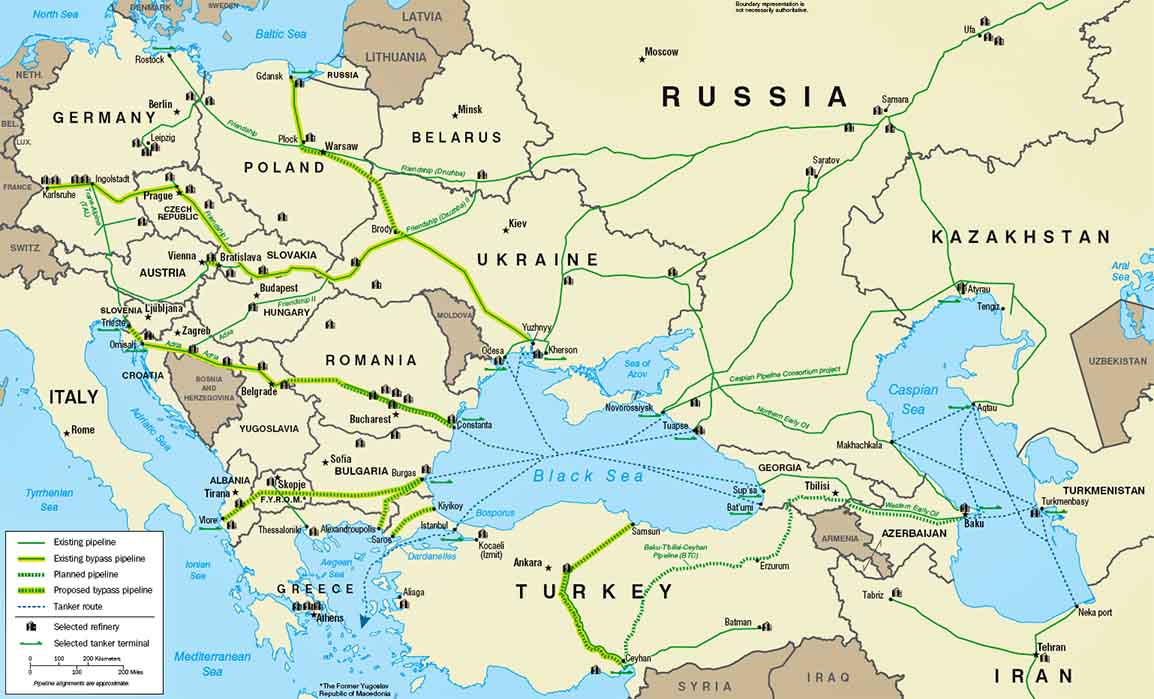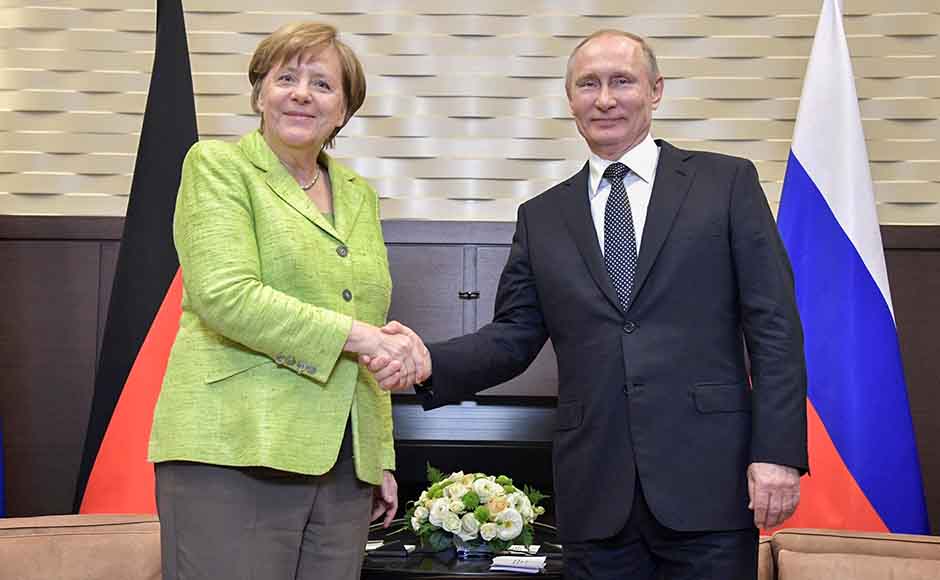On February 24, 2022, Russian troops entered Ukraine. The war which, according to intelligence analysts from the USA, Germany and France, was to last 4-5 days and end with the occupation of Ukraine and the complete subordination of Ukraine by Russia, and perhaps even the erasure of the name Ukraine from the map of Europe, began.

A column of Russian equipment destroyed by the Ukrainian Armed Forces (Source: Wikipedia)
The first war in Europe in the 21st century takes place in view of camera lenses. Public opinion in the USA and in Western European countries is shocked by the scale of brutality of Russian troops visible in the films, the fact that the Russian army is being used against civilians, the bombing by Russian cannons, planes and rockets of Ukrainian hospitals and apartment blocks, the shooting by the Russian army of Ukrainian women and children escaping through humanitarian corridors from the combat regions, and reports about the raping of Ukrainian women by the Russians.
There was no such surprise in Poland or in other countries of the former Eastern bloc. In particular, people from the 50+ generation, who remember how the life was under the Soviet boot, and who saw what "Russkij Mir" (Russian Peace) means in practice, are not surprised.
Why did Russia enter Ukraine with its army? Simply put, Russia's war with Ukraine broke out because the United States agreed to the completion of the construction of the Nord Stream 2 gas pipeline.

Gas pipelines to Europe (Source: Wikipedia)
As far back as during the heyday of the Soviet Union, land pipelines were built to transport gas and oil from Russia to Germany. Pipelines run to Germany via Belarus and Poland, and via Ukraine, Slovakia and the Czech Republic. For the transport of gas and oil, transit countries receive a transit fee, and at the same time have the option of collecting gas and oil for their own needs. Ukraine received around US $3 billion annually in transit fees, which was around 10% of Ukraine's income, while the Ukrainian state budget revenues were around US $37 billion.
Gas is a fuel that is increasingly necessary for the economies of modern countries, and the needs will increase every year, which is why the Russians and Germans have come up with a brilliant business idea. Russia will send gas to Germany, and Germany will thus become a gas hub for Europe and will sell Russian gas to Poland and other European countries. Great business for them? Fantastic!
For several years, the European Commission, under the pretext of caring for ecology, has been planning to reduce carbon dioxide emissions by moving Europe away from burning coal in favor of a slightly more ecological gas. It is no coincidence that Germany has the decisive voice in all institutions of the European Union and de facto steers the actions of the European Union. On the other hand, the abandonment of the use of coal in the economy will hit Poland hard, as it bases its energy sector on its own cheap coal.
Poland is not opposed to concern for the natural environment, but it emphasizes the fact that the countries of Western Europe, which today plan to quickly move away from the coal-based economy, previously had decades to implement the utilization of energy from renewable sources. Poland, due to 45 years of communist rule, has to make up for this lost time.
Implementing the joint strategy, Russia and Germany concluded an agreement, first for the construction of the Nord Stream 1 gas pipeline on the seabed of the Baltic Sea, which has already given Russia the possibility of some reduction in gas transmission through Ukraine and Poland. However, it was only the construction of the second line of the gas pipeline known as Nord Stream 2 that gave Russia the opportunity to completely shut down transmission via Ukraine and Poland.
Thanks to the monopoly on the distribution of natural gas from Russia sent via the Nord Stream 1 and Nord Stream 2 pipelines, Germany will also have a tool to temper recalcitrant Poles or Hungarians and will be able to enforce the consent of states buying Russian gas in any matter that the German euro-bureaucrats come up with. Simply put, it was supposed to be a very effective way for the Germans to take under their shoe not only the Poles.
And when the construction of Nord Stream 2 was actually completed (only the formalities in the form of acceptance and approval of the gas pipeline for operation remained), the US administration gave up on the sanctions imposed on NS2. This resignation from the sanctions meant the de facto consent of the US to the completion of the construction of the Nord Stream 2 gas pipeline, and it was a symbolic transfer of power over Europe by the US to Germany.

Oil pipelines to Europe (Source: Wikipedia)
Meanwhile, it seems that after the collapse of the USSR and after 30 years of peace in Europe, both the USA, Germany, the French, the Dutch, and the Belgians have forgotten what this Eastern European game is all about, and who is the policeman and who is the thief.
Unfortunately, neither the Americans, nor Germany, nor other Western European countries at all realize who they are dealing with in their relations with Russia and, at the same time, they do not want to listen to what the countries of Eastern and Central Europe, including Poland, say about Russia.
For Russia, the US consent to complete the construction of the Nord Stream 2 gas pipeline was like proposing to raise a toast to health and a bright future to an alcoholic.
It is no coincidence that 85% of Russia's population supports the war in Ukraine and the persona of President Putin. The Russians always were, are, and will be imperialists, and they still apply the principle that Vladimir Lenin loudly proclaimed: "The capitalists will sell us the rope on which we will hang them."
The current war is fought for the money that European countries pay for raw materials bought in Russia. In addition, Russian tanks are equipped with French rangefinders and sights, and Russian missiles would not have launched an attack on civilians in Ukraine if they had not had Western electronics installed.
The actions taken by the USA after the outbreak of the war give some hope that the erroneous approach of the USA to relations with Russia has been changed, but the prose of life has shown that it was not entirely so.
In the second week of the war, the American administration officially insisted that Poland should directly hand over its MiG-29 planes to Ukraine in exchange for the US handing over F-16 aircraft to Poland (Poland had bought and operated 48 such machines for 16 years). In response to the US proposal, the Poles said: we will provide the planes to the American base in Rammstein in Germany, you hand them over. Then the Americans said it was too dangerous. Dangerous for the USA, and not for Poland anymore? What did the Americans mean then?
It is obvious that nobody wants the war spreading all over the world. Similarly, it is obvious that the Polish MiG-29 planes will not be used by the Ukrainians in combat the day after they are handed over. Before that, it is necessary to remove the painting of Polish colors, repaint it in the colors of Ukraine, adapt the avionics to the needs of Ukrainian pilots (they are completely different than those known to pilots from Ukraine), dismantle NATO communication and reconnaissance devices and install Ukrainian equipment. It all would take a few weeks of preparation.
The US could take Polish (but also Hungarian or Slovak) Soviet-made planes in order to prepare them in such a way that they could be handed over to Ukraine the day after the end of the war.
The same also applies to the Mi-24 attack helicopters and other post-Soviet war equipment that the Ukrainian military can use effectively against Russian troops. After all, the Ukrainians will need this equipment immediately after the truce is established.
The US proceedings regarding the war between Russia and Ukraine also show that the Americans have a big problem with their own personnel. This is about analysts who should have known in advance and advised effectively. Meanwhile, in matters relating to relations with Russia, employing people educated even at the best American universities will not work. Someone who did not live in the times of the communist system, in communist countries, has no chance to understand Russia and successfully defeat it.
Wake up, gentlemen! We have new times, new challenges, but an old problem. Russia is still the problem.
Translation from Polish by Andrew Woźniewicz.






